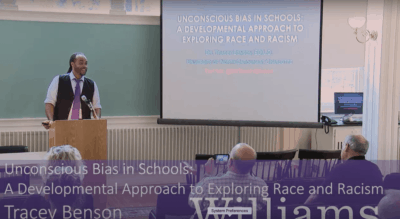
Tracey Benson: Unconscious Bias in Schools
Tracey Benson, Assistant Professor of Educational Leadership at the University of North Carolina-Charlotte, spoke to the subject of his newly
A bold effort to address and disrupt an unjust educational system in hopes of creating equitable opportunities and outcomes for black students and students of color.
In the city where Dr. King was assassinated in 1968, the unfortunate event has left a proverbial scar on the city of Memphis, the south, and America. While progress has been made, there is much more to do.
Dr. King came to the city to not only fight for the rights of sanitation workers, but also against the systemic institution of racism.
In 2020, Racism was declared a pandemic in Shelby County. To not tackle how racism affects the school system would be an injustice to our students. As an educational organization, serving students in two of Memphis’ most disadvantaged communities, we feel it’s only right that we make it our mission to dismantle and disrupt and unjust educational system rooted in racism; a system that directly affects our students and their families and can ultimately impact the trajectory of their success.
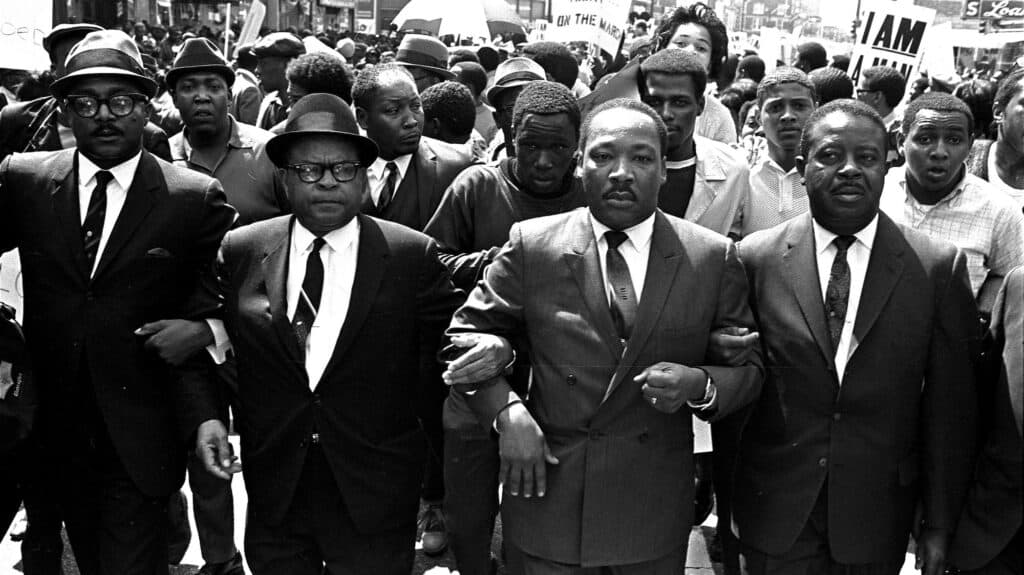
In 2020, during an already unprecedented year due to the COVID-19 pandemic- the country, and possibly the world was uprooted after the deaths of George Floyd, Breonna Taylor, Ahmaud Arbery, Rayshard Brooks, and others. As a result of the unfortunate events, companies began taking stances against racist practices, vowing to put diversity and inclusion at the forefront of their organization, while adopting anti-racist policies.
While Frayser Community Schools has always condemned racism—after the unfortunate incidents that shifted the way many companies decided to do business—we knew that we couldn’t go back to business as usual. As an organization that serves a majority black student demographic, we felt morally obligated to examine our practices as an organization while also shedding light on the systemic racism and inequity that is pervasive in the educational system as a whole.
The FCS network team began holding collaborative meetings to focus specifically on our anti-racist agenda—to ensure we can be a part of the solution in addressing racist practices in education.
The FCS Equity in Education Initiative is a bold effort to address and disrupt an unjust educational system in hopes of creating equitable opportunities and outcomes for black students and students of color.
When I say antiracist education, I am talking about equipping students, parents, and teachers with the tools needed to combat racism and ethnic discrimination, and to find ways to build a society that includes all people on an equal footing.
Enid Lee
The road to education is not paved with equal opportunity. Racial inequity is baked into the nation’s education system in ways big and small. Black children face the most extreme hurdles to academic success.

Shed light on the key inequitable issues affecting black students and students of color within the educational system.
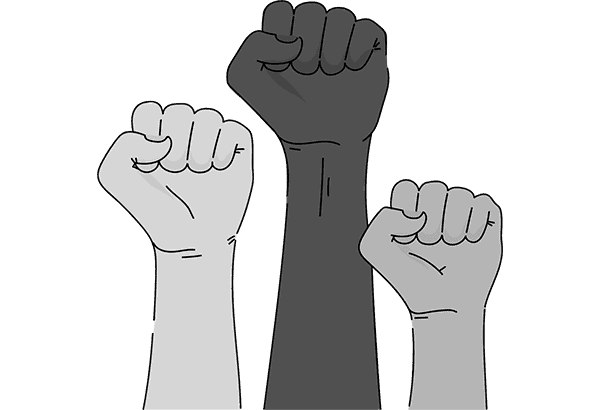
Implement plans that challenge anti-racist practices.

Boldly speak up and against issues that are racist; and provide our students, teachers, and parents with the information and tools needed to be advocates in education.
The FCS Anti-Racism Initiative is our effort to address and disrupt an unjust educational system and racist practices in hopes of creating equitable opportunities and outcomes for black students and students of color.
While there is much to do when it comes to tackling racism in schools, FCS has created a comprehensive plan that focuses heavily on three areas.
When children attend schools that place a greater value on discipline and security than on knowledge and intellectual development, they are attending prep schools for prison.
Angela Davis
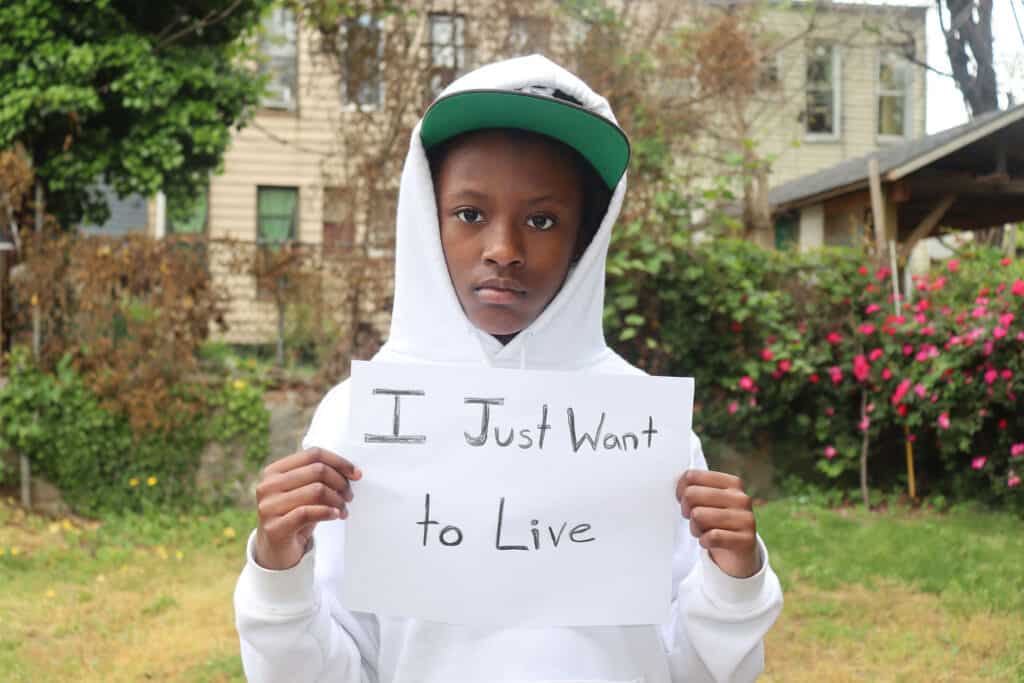
Black students are more likely to get suspended than white students. What has been called the “school-to-prison pipeline” often starts in the principal’s office and ends in prison, with school suspensions increasing the risk that black boys, in particular, end up incarcerated or drop out of school.
FCS will ensure that we focus on “restorative practices,” instead of “punitive practices.” This includes our new “no expulsion” policy that will ensure students are not suspended for minor infractions.
In a trauma-informed school, the adults within the school community are prepared to recognize and respond to students who have been impacted by traumatic stress. Our schools will implement a layered approach to create an environment with clear behavior expectations, open communication, and sensitivity to the feelings and emotions of others.
This includes the hiring of a restorative justice specialists and enlisting community partners focused specifically on Adverse Childhood Experiences.
Adverse Childhood Experiences is the single unaddressed public health threat of our time.
Robert W. Block

Parents are vital to student success. Despite this, many schools have failed at gaining the trust and providing a level of hospitality to black families.
Our schools will be intentional in creating spaces for parents to feel welcomed, while also providing them with the resources needed to become advocates in their child’s education.
CEO of Frayser Community Schools, Dr. Bobby White talks about why he decided to name the first school in his charter network after the late civil rights icon, Dr. Martin Luther King, Jr.
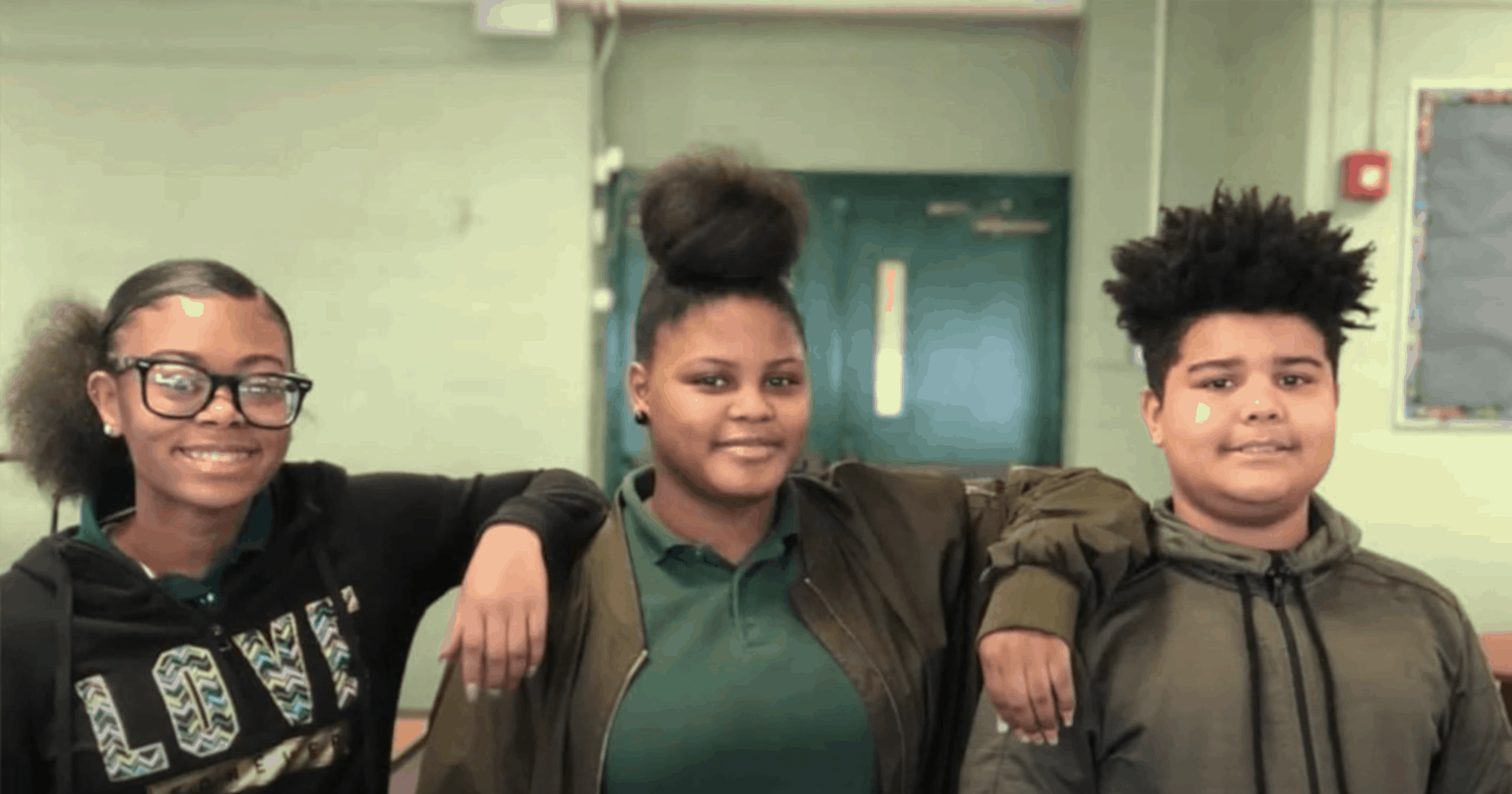

Tracey Benson, Assistant Professor of Educational Leadership at the University of North Carolina-Charlotte, spoke to the subject of his newly
Your contribution is important to the work that we do. As we continue developing programs and opportunities for our students and families in the fight against racial discrimination in education, we need your support.
To be antiracist is a radical choice in the face of history, requiring a radical reorientation of our consciousness.
Ibram Kendi
Sign up to get news and updates delivered to your inbox.
Parents can also text: FCSUPDATES at 22828
Copyright ©2024 | Frayser Community Schools
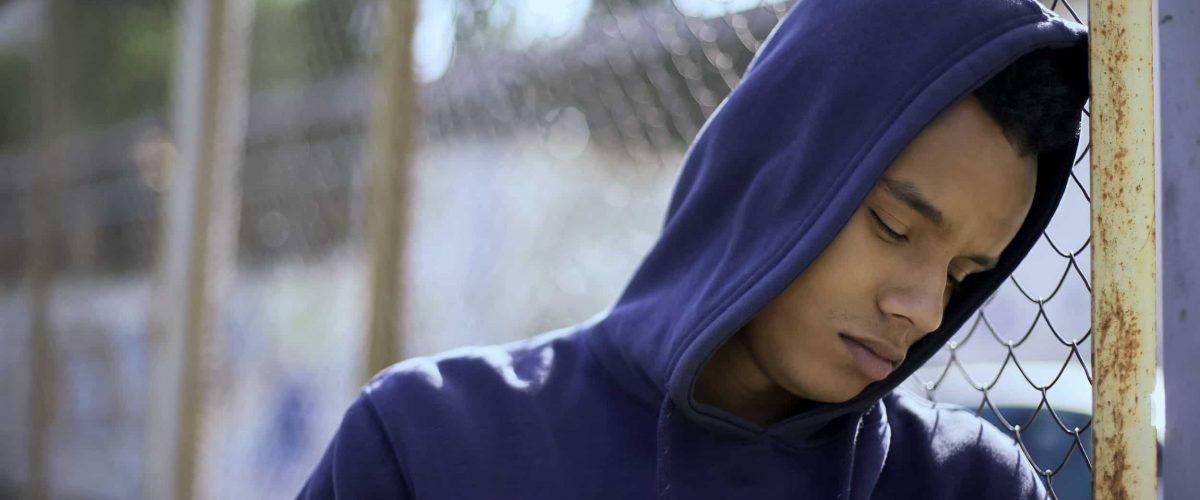
The “school-to-prison pipeline” is, in reality, two pipelines that combine to drive students out of the classroom, away from a pathway to success, and towards or into the juvenile or criminal justice system.
Despite indicators showing that violence among youth is decreasing across the country, the perception persists among the public that school violence is a growing problem. In response to these sometimes, irrational fears of school violence, school administrators have developed a variety of over-zealous discipline policies—including mandatory “zero tolerance” policies—that re- move students deemed to be “problem children” from their schools.
Far too often students of color, students with disabilities and students that are impacted by trauma are disproportionately disciplined and arrested rather than receiving the support and services that allow them to remain in the classroom and continue to make educational progress.
Children who have been expelled or suspended from school once are much more likely to be disciplined similarly again, and two times more likely than their peers to drop out of school.
Students who are arrested at school are three times more likely to drop out than their peers.
Black students are almost four times and Latino students three times as likely to be suspended as their white peers.
Students who drop out of school are more than eight times more likely to end up in the criminal justice system.
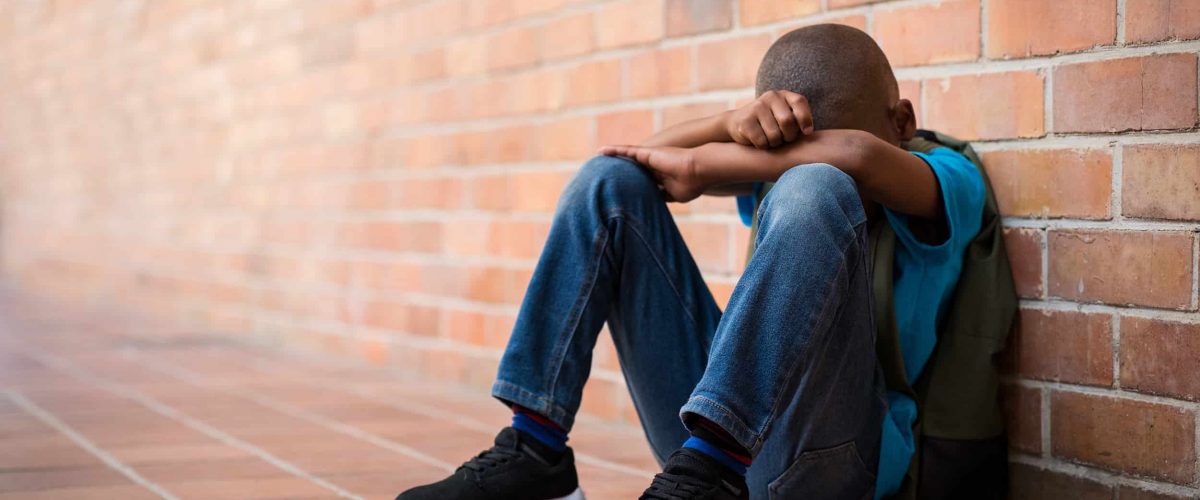
Ensure that discipline practices within schools positively support student success and learning (both academically and socially).
Ensure that discipline practices are implemented equitably, regardless of race, gender, ethnicity, religion, disability, or other discriminatory categories.
Provide data to determine needed support, training, or resources.
Provide schools an opportunity to reflect on prior practices and data as a part of the school’s continuous improvement plan.
Exposure to racism (i.e., discrimination; stigma; minority stress; historical trauma) is one expanding area of research that is being considered for an “enhanced” ACE measure. Learn more about the research from the UNC School of Social Work.
In the United States, 61% of black children and 51% of Hispanic children have experienced at least one ACE, compared to 40% of white children.
In every part of the country, the lowest rate of ACEs was among Asian children. In most areas, the population most at risk was black children.
Poor children and near-poor children are more than twice as likely than their more affluent peers to have had three or more other adverse experiences.
Facts and statistics are from the following sources:
Centers for Disease Control and Prevention, Child Trends, Trauma Aware Schools,

A preponderance of studies operationally define parental involvement as specific acts of engagement, such as helping children with their homework, volunteering in schools, or attending parent teacher conferences. These measurements are often based on generalized conceptions that do not account for culturally distinct parenting techniques. For instance, Black parents may deliberately employ unique behaviors that seek to promote their children’s academic outcomes. Unfortunately, culturally distinct behaviors of Black parents are not represented in the current parental involvement literature. As a result, the current literature may suggest that Black parents are less involved in their children’s academic lives that they actually are.
Of course, in order to understand parental involvement within the Black community, it is important to understand how experiences with racism can impair the academic achievement of Black students.
Effective parent involvement programs for Black students can aid in increasing academic achievement and reducing suspensions of their children. Parent involvement programs should incorporate the unique assets African-Americans bring to such programs. All too often parent programs are school-centric, meaning that school personnel define what factors are in the programs. Effective linkage between parents/home environment, school personnel, and community resources is essential to the development of an effective parent involvement program that significantly enhances education for Black children.
Facts and statistics are from the following sources:
Child Trends, Education and Urban Society
Parents have higher rates of attendance at school meetings, conferences, and events, and of volunteering in their child’s school, when their child is in elementary or middle school.
Parents of students living in households with income at or above the federal poverty level (FPL) have higher rates of involvement in school activities than those in households below the FPL. For example, during the 2015–2016 school year, 47 percent of students living at or above the FPL had a parent who volunteered or served on a committee at school, compared with 27 percent of students living below the FPL. Low-income workers tend to have rigid work schedules, which can make it difficult for them to participate in their children’s schools or attend school functions